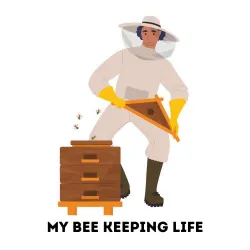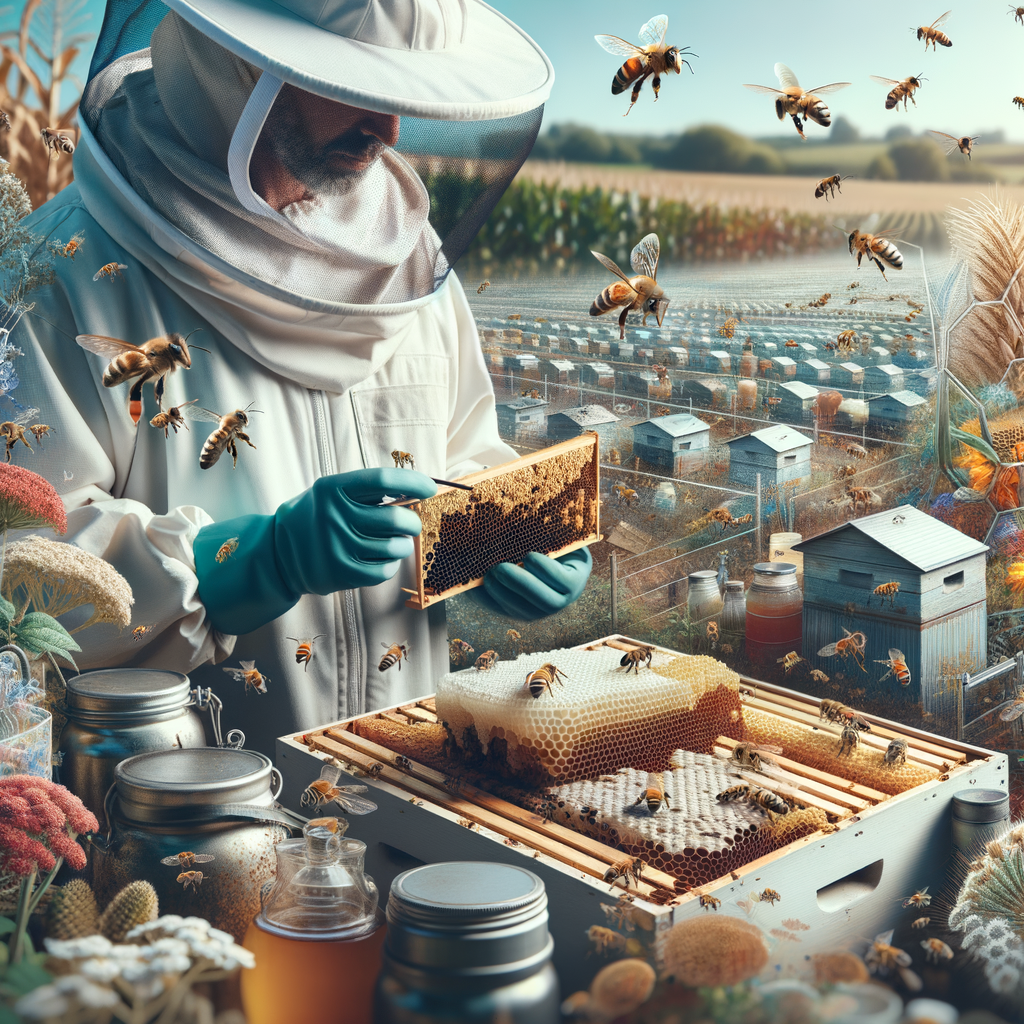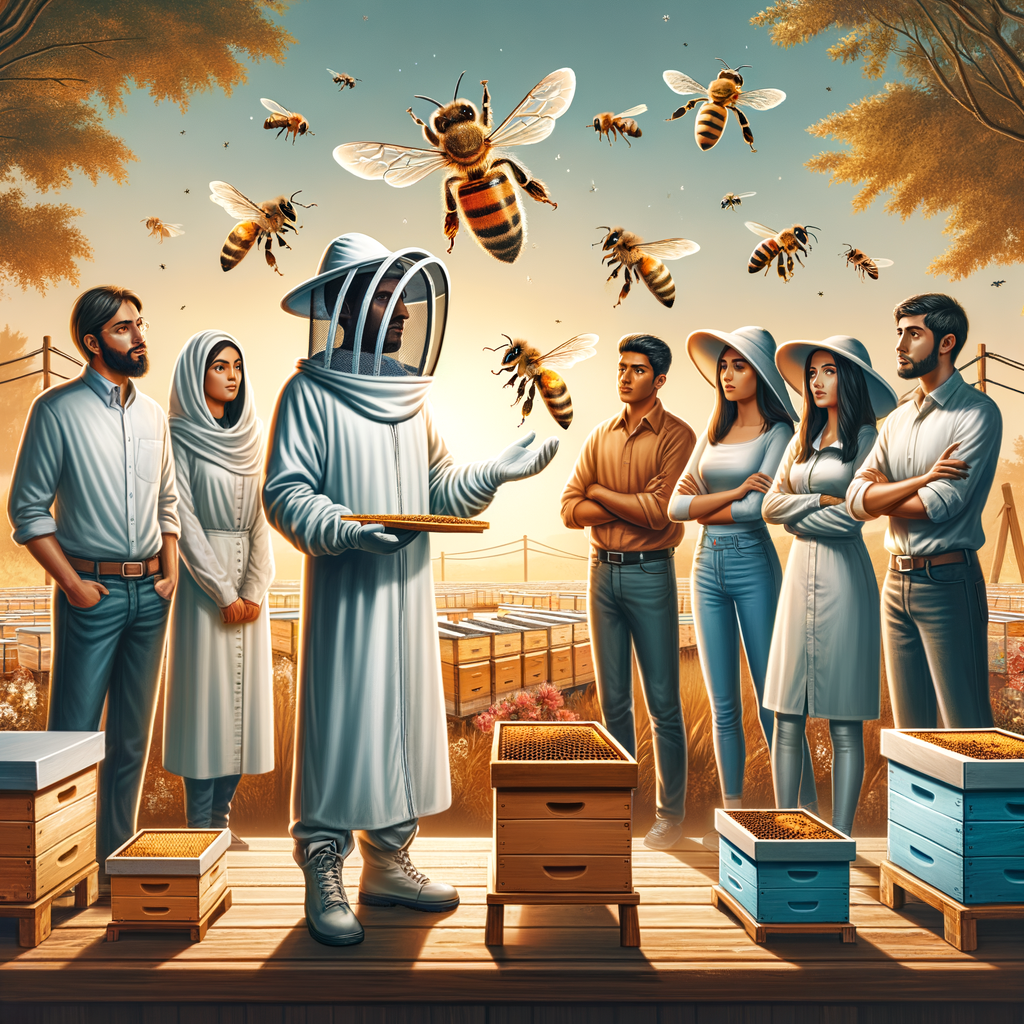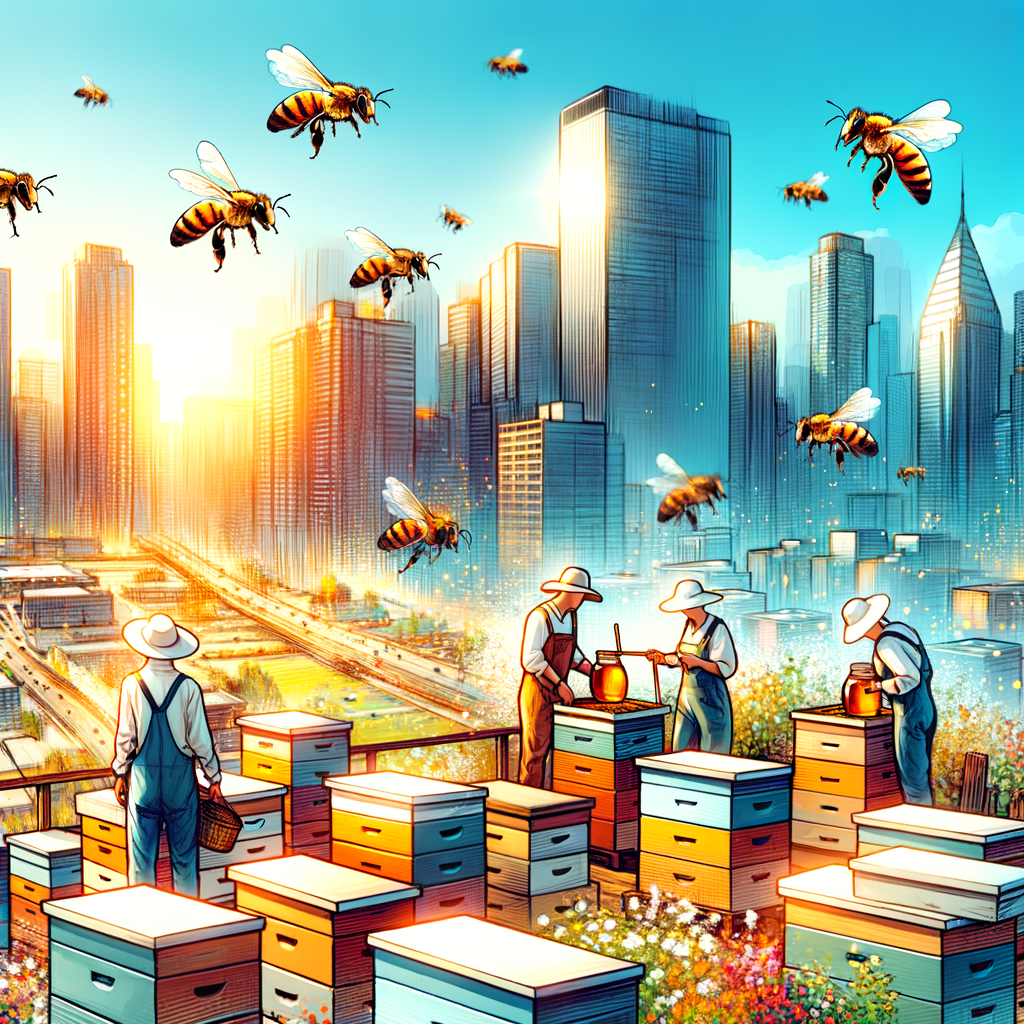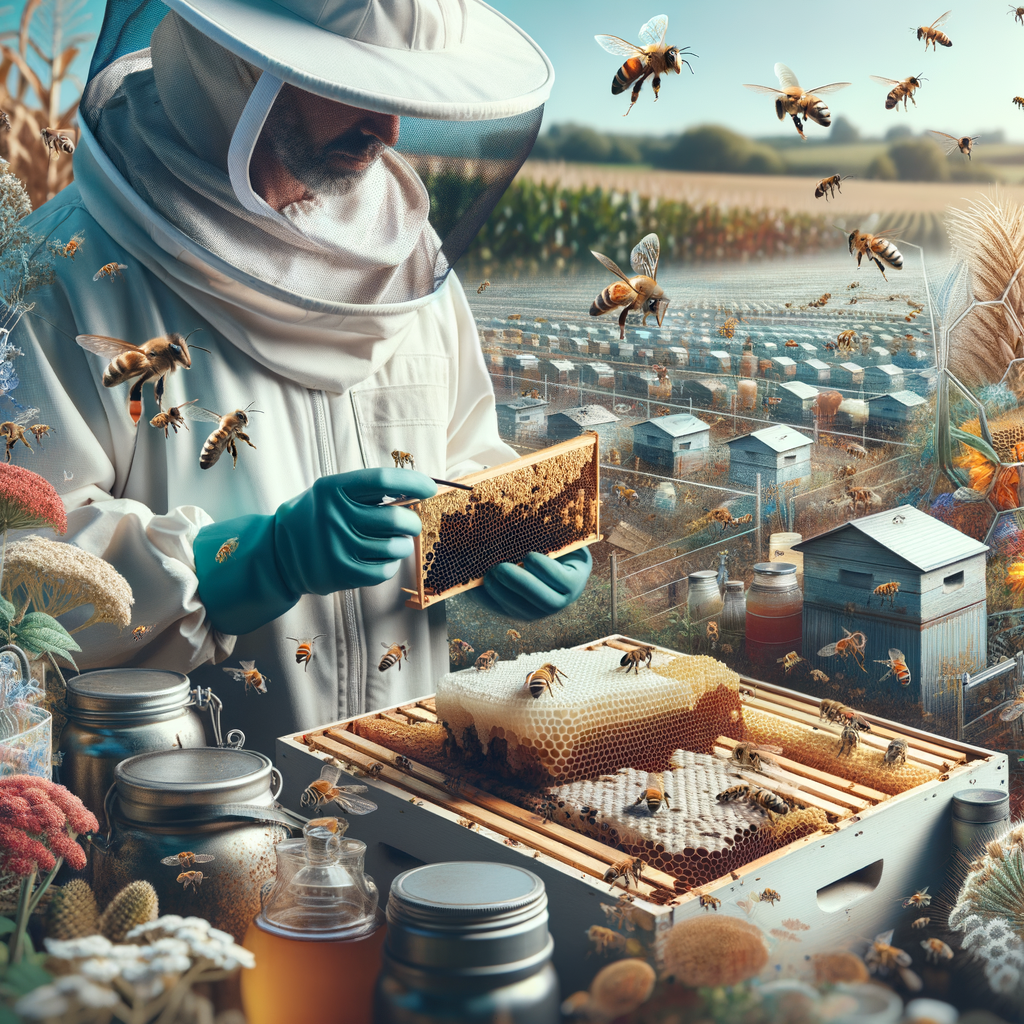
Introduction to Beekeeping and Pollination
Welcome to the fascinating world of beekeeping and pollination. This introductory guide will help you understand the basics of beekeeping and the crucial role bees play in pollination. Let’s dive in!
-
- Understanding the concept of beekeeping
Beekeeping, also known as apiculture, is the practice of maintaining bee colonies in man-made hives. This age-old tradition dates back to ancient times and is practiced worldwide for various reasons, primarily honey production and pollination services for crops.
Beekeepers, also known as apiarists, manage hives or colonies of bees. They ensure the health of the colony and protect the bees from diseases and pests. Beekeepers also harvest honey and other products like beeswax, pollen, and royal jelly.
-
- Importance of bees in pollination
Bees are nature’s most efficient pollinators. Pollination is a process where pollen is transferred from the male parts of a flower to the female parts. This process is vital for the reproduction of many plants, including crops that produce our food.
When bees collect nectar and pollen from flowers for their food, they inadvertently transfer pollen between flowers. This process of cross-pollination helps plants to produce fruits and seeds. In fact, it’s estimated that one-third of the food we eat depends on pollination, mainly by bees.
It’s about supporting a complex ecosystem and food production system by maintaining healthy bee colonies. And remember, every time you enjoy a spoonful of honey, you’re tasting the result of thousands of bees’ hard work and a beautiful dance of nature called pollination.
The Role of Beekeepers in Pollination
Beekeepers play a crucial role in pollination, which is vital for the growth of plants and the production of food. They have a wide range of responsibilities, all aimed at maintaining the health and productivity of their bees.
Responsibilities of Beekeepers
- Maintaining bee health: Beekeepers monitor their bees for signs of disease or stress, and provide them with the necessary treatments and care.
- Ensuring optimal hive conditions: They ensure that the hive is clean, dry, and at the right temperature, and that there is enough food for the bees.
- Placement of hives in strategic locations: Beekeepers place their hives in locations where there are plenty of flowers for the bees to feed on.
- Rotation of hives to match flowering seasons: They move their hives to different locations throughout the year to match the flowering seasons of different plants.
- Use of natural hive materials: Many beekeepers use natural materials like wood and wax in their hives to create a more natural environment for the bees.
- Harvesting honey without harming bees: Beekeepers use special techniques to harvest honey without harming the bees or damaging the hive.
- Use of artificial hives: Some beekeepers use artificial hives, which can be easier to manage and more productive than natural hives.
- Techniques for managing bee diseases: Beekeepers need to know how to identify and treat various bee diseases, and how to prevent them from spreading.
- Understanding flower blooming cycles: Beekeepers need to understand the blooming cycles of different plants so they can move their hives to the best locations at the right times.
- Maximizing pollination efficiency: By managing their hives effectively, beekeepers can help their bees to pollinate as many flowers as possible.
- Dealing with climate change: Climate change is a major challenge for beekeepers, as it can disrupt flowering seasons and increase the risk of bee diseases.
- Addressing the issue of bee diseases: Beekeepers need to be vigilant about bee diseases, and take action to prevent and treat them.
- Increased crop yield: By pollinating crops, bees can significantly increase their yield, which benefits farmers and consumers alike.
- Improved quality of produce: Pollination by bees also improves the quality of the produce, making it tastier and more nutritious.
- Promotion of biodiversity: Bees help to promote biodiversity by pollinating a wide variety of plants.
- Support for other wildlife species: By pollinating plants, bees also support other wildlife species that depend on those plants for food and habitat.
- Importance of pollination in agriculture: Pollination by bees is essential for the production of many of the foods we eat, including fruits, vegetables, and nuts.
- How beekeepers support agricultural productivity: By maintaining healthy bee populations, beekeepers help to ensure the productivity of our agricultural systems.
- Before and after comparison of crop yield: Studies have shown that crops pollinated by bees produce significantly higher yields than those that are not.
- Analysis of the economic impact of beekeeping: Beekeeping contributes billions of dollars to the economy each year, through the production of honey and the pollination of crops.
- Continued importance of bees in pollination: Despite the challenges they face, bees continue to play a vital role in pollination, and their importance is only expected to increase in the future.
- Emerging trends in beekeeping practices: Beekeepers are constantly developing new techniques and practices to improve the health and productivity of their bees, and to adapt to changing conditions.
